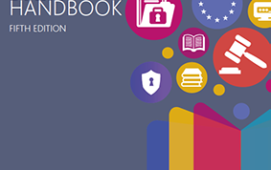The European Commission’s “in-depth investigation into Thomson’s takeover of Reuters” – announced earlier this month – is only to be expected. Whether it will put a dampener on things – by either quashing the deal or insisting on some very visible ‘sacrifice’ by the parties involved – remains to be seen.
Mechanically speaking, the EC investigation – whose announcement coincided with a ‘timing agreement’ with the US Justice Department – involves moving to a so-called Phase 2 review of the proposed transaction, enabling the commission to examine the deal and its impact on the competitive environment. This aspect of the review is expected to be completed in the first quarter of 2008, and will involve the commission working with both Thomson and Reuters “to help narrow and resolve the issues which the EC has indicated require further review”. The EC has until February 28 next year to report on the matter. The Justice Department regulatory review, meanwhile, will conclude by January 15.
As predicted (Market Data Insight, May 2007), the EC’s initial investigation has highlighted concerns in the areas of “the provision of data feeds, the access to specific financial information databases commercialised by the notifying parties, the access to real-time and aftermarket research (broker reports) and the provision of news services’.
Reuters has already indicated that it is willing to make sacrifices to assuage these and any other regulatory concerns. Market practitioners, however, question whether a regulatory missive to spin-off one or more of the overlapping businesses would be any more than just, well, spin. To strike at the heart of monopolistic power, some say, the EC would need to hit Reuters’ secret weapon: the Reuters Instrument Code (RIC).
The complexities of the RIC’s relationship with the marketplace hopefully won’t be lost on EC and DoJ investigators. For its part, Reuters has flirted with the idea of making the RIC more widely available to the marketplace (twice in our memory) only to rein such plans back in pronto. Industry protagonists suggest an ‘open source’ approach to assigning RICs – which would allow third parties to issue codes as necessary – would be a significant step in levelling the market data playing field in the face of an imminent duopoly. But they would, wouldn’t they?
Subscribe to our newsletter




